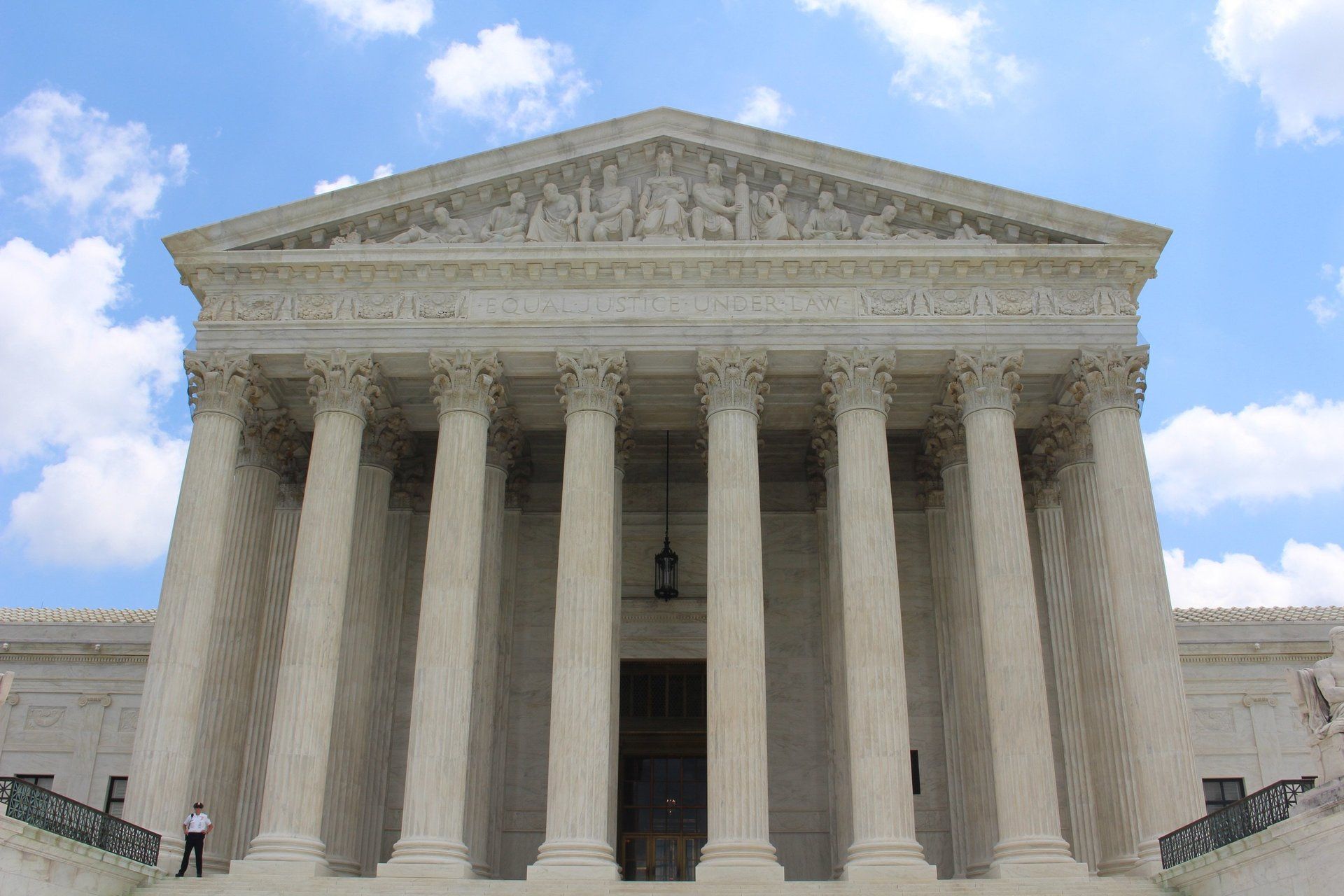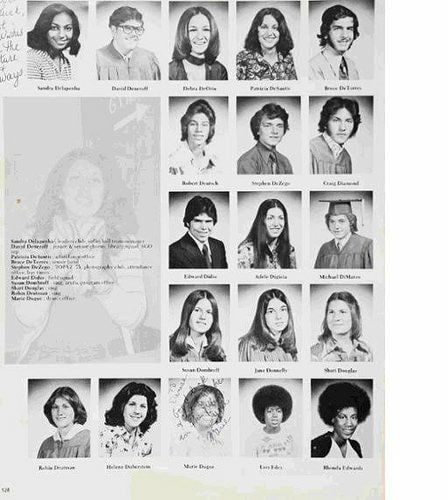SHE SAID; HE SAID
Brigitte Kimichik • August 27, 2018
On this day, Dr. Christine Blasey Ford was called and voluntary appeared to testify in front of the Senate Judiciary Committee to detail her experience of an incident of sexual assault allegedly committed against her by then Supreme Court nominee Brett Kavanaugh. According to Dr. Ford, the assault allegedly occurred at a casual gathering at a home in the summer of 1982, more than 36 years ago. She agreed to testify, despite the many threats she received to her person, her family, and her humanity. Her testimony would be a momentous day for the #MeToo Movement and a tremendous test for how she would be treated and perceived. Would she be believed?
As she began her testimony, she appeared sincere, emotional, and intelligent. She offered many times that she wanted to be helpful with the facts. She seemed anxious and scared at times — in her own words “terrified” to tell her story, and as she described the details she could in fact remember, she appeared genuine and compelling. Even believable. However, there were gaps in her story. She could not remember the exact date, home, or specific location of the gathering, she could not remember who drove her to the gathering and who drove her home, and she could not remember who else might have been at the gathering other than Judge Kavanaugh and Mark Judge (who she claims were in the upstairs bedroom where she was assaulted), and her girlfriend Leland Kaiser and another male friend “PJ” who were downstairs with a few other people. Gaps, which sexual assault experts will confirm are typical for sexual assault survivors, especially with the passage of time.
The Republicans on the Senate Judiciary Committee chose to have a sexual assault prosecuting attorney question Dr. Ford during their allotted 5 minute segments. The approach might have been unfortunate. It was difficult for the prosecutor to maintain her momentum in establishing important gaps for consideration. As she pointed out at the end of her questioning, a “Forensic” or “Cognitive” interview is what experts will use to “fill in the gaps” with sexual assault survivors. It helps victims tell their stories with effort to help recall details that may be buried or not easily recalled. The testimony given in 5 minute intervals with Democrat Senators intervening with their comments and questions was not the best approach and did not have much of an impact on challenging Dr. Ford’s memory.
At recess, one thing remained clear. “She said” the incident happened and Dr. Ford was 100% confident it was Brett Kavanaugh who sexually assaulted her. She was emotional and compelling. However, she was not able to provide any corroborating evidence. Mark Judge, Leland, and Patrick PJ Smith, all submitted ‘Affidavits under Penalty for Felony’ that they did not recall any such gathering or any such incident of sexual assault. When asked to comment on this fact, Dr. Ford responded that she was not surprised that Leland or PJ could not remember, after all, “nothing significant” happened to them that day. There were, however, more gaps. Dr. Ford did not know who was paying her legal fees, the exact date of when she was given a lie detector test (which, after further questioning turned out to be limited to a statement she had given regarding her assault), and whether or not she had given her psychiatrists notes about the alleged assault to the news organization that eventually broke the story.
After recess, it would be Brett Kavanaugh’s turn to testify. As expected, “He said” the incident never happened. He was equally credible and compelling. Judge Kavanaugh was emotional—very emotional, and at times raising his voice in anger. His tone was highly criticized as inappropriate for a Supreme Court nominee. What may not have been generally known is that he was criticized a few days earlier for being too reserved and weak during an interview on Fox with Martha MacCallum. In response, he may have adjusted his tone and came out swinging during his testimony. Regardless, his tone was not surprising. After all, he was defending his integrity and impeccable record as a federal judge and the reputation of his family. He has serious support from many women over his lifetime (in high school, college, law school, and during his many years on the bench) and there was no credible pattern of sexually assaulting women. And no, the fact that he “likes beer” does not constitute bad behavior.
As we learned later, the allegations of Dr. Ford were brought by letter to the attention of the ranking member of the Senate Judiciary Committee, Senator Feinstein, more than 6 weeks prior to the time that there would be a vote on the nominee by the Senate Judiciary Committee. According to the Senator, the letter was requested by Dr. Ford to stay confidential. So the letter and the allegations were not disclosed to the committee, the public, or Judge Kavanaugh during any of the ongoing hearings or to the FBI for investigation until the committee hearings had been completed—for 6 weeks. Just prior to the scheduled vote on the nominee, the letter (and the therein allegations) were leaked to the press. Senator Feinstein insists that neither she or her office leaked the letter. As you would expect, the timing of the release appeared suspect and many on the right argued politically motivated by the Democrats to derail or delay the vote on this nominee. Whether or not politically motivated, Senator Feinstein should have advised Dr. Ford that it was her (Feinstein’s) responsibility as a committee member to disclose this new information to the committee. The allegations could have been investigated properly and confidentially and much of the heart ache suffered by both Ford and Kavanaugh families might have been avoided. The argument regarding timing of the release as politically motivated could have been avoided.
As expected, a political fight ensued. The Democrats wanted a delay of vote to conduct a new FBI investigation to see if any of Dr. Ford’s accounts could be corroborated. They wanted Judge Kavanaugh to ask for an FBI investigation to ‘clear his name’. The Republicans were outraged at the handling of Dr. Ford’s letter and refused to call for a new FBI investigation since it would likely delay a vote on the current nominee and (arguably) potentially risk Judge Kavenaugh as nominee. And, none of the prior numerous FBI investigations conducted throughout his career had ever raised such allegations. In the end, a few of the majority members held their votes hostage for an FBI investigation limited in time and scope. Too limited and narrow in scope for the minority. Dr. Ford’s allegations remained uncorroborated.
A giant step back for the #MeToo Movement? What should have been a fair and balanced process for hearing and investigation of a nominee became a political media circus. Dr. Ford’s very serious allegations of sexual assault should have been disclosed to the committee as soon as they surfaced to allow for a thorough investigation for any corroborating evidence. Regardless of her claims, Judge Kavanaugh deserved to be treated with decency and respect in light of his record, claim of innocence, and lack of any credible corroborating evidence or past behavior of sexually harassing or assaulting women. Any nominee deserves our decency and respect and a fair and thorough process, regardless of politics.
The intent of the #MeToo Movement is to shine a bright light on inappropriate behavior, to create awareness and to educate, in hopes of modifying and putting a stop to such behavior going forward. The movement has exposed violators with a history or pattern (spanning years or decades) of sexual harassment and is finally bringing those with known sexual predator behavior to justice. Corroboration, witnesses, and patterns of sexually harassing behavior are very important for a victim to support her allegations - even if she appears compelling. Take detailed notes of the details surrounding any incident and who was in attendance. Tell someone what happened. Get confirmation in writing from any witnesses. Gather corroborating evidence. It will bolster your credibility. As harsh as this sounds, mere allegations (without corroboration) are not sufficient and not fair to the accused, especially if the accused has no credible pattern of supporting behavior.
Dr Ford’s allegations were not handled properly and Judge Kavanaugh was not treated fairly - at the expense of grave harm to the parties involved and their families - and to the #MeToo Movement. Our elected officials should be ashamed of themselves.






